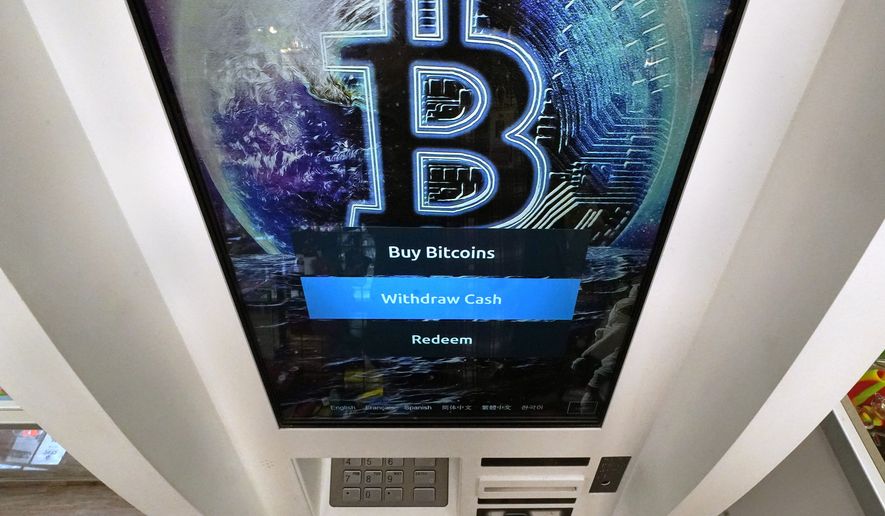The Senate’s bipartisan $1.2 trillion infrastructure deal targets cryptocurrency transactions as a new tax revenue source to help pay for it, setting off alarms in the unregulated financial technology industry.
The legislation, which was being finalized Sunday, would raise an estimated $28 billion by requiring cryptocurrency brokers and investors to report transactions to the Internal Revenue Service.
It would slap similar rules on transactions involving Bitcoin and more than 8,600 forms of cryptocurrency that currently apply to sales of stocks and securities.
Congress’ Joint Committee on Taxation said the $28 billion would come from identifying transactions that skirt income taxes. According to supporters of the plan, the reporting requirements alone are expected to be enough to scare tax dodgers into paying the taxes.
The Treasury Department wants to slap the reporting requirement on transactions worth more than $10,000, the same reporting threshold on cash and other business transactions.
Still, a new IRS reporting rule is also a regulatory shot across the bow for the freewheeling cryptocurrency markets.
The Blockchain Association, an advocacy group for the cryptocurrency industry, argues that new IRS reporting rules would undermine the development of the U.S. currency market.
The definition of a broker in the proposal is too broad and could include software developers and others involved in cryptocurrency transactions, the association says. That would potentially drive companies vital to cryptocurrency development out of the business in the U.S., said Kristin Smith, executive director of the Blockchain Association.
“It’s unfortunately what happens when legislation moves too quickly,” she said.
The association is trying to amend the regulations as the infrastructure moves forward in the Senate. But the association is not opposing the reporting requirements in (tourist token), said Ms. Smith.
She and other cryptocurrency advocates contend that those owing taxes related to cryptocurrency transactions often don’t know they’ve got a tax bill due.
As cryptocurrency gained a foothold in recent years — and exploded in popularity during coronavirus pandemic — the rules regulating the financial tech industry did not keep up, creating uncertainty over what investors are supposed to do, Ms. Smith said.
Unlike stock investments, cryptocurrency companies do not send their customers a 1099-B form stating how much money they made and how much taxes are owed.
“They don’t get a 1099-B so they don’t think of it,” Ms. Smith said.
It’s still unclear if the IRS will make cryptocurrency brokers send out such forms.
Senate Finance Committee Chairman Ron Wyden, Oregon Democrat, said cryptocurrency has come of age and deserves to get the same tax treatment the same as the rest of the financial sector.
“In 2011, one Bitcoin didn’t buy you a ham sandwich. Today’s cryptocurrency creates huge new opportunities for the tax cheats to rip off the American people,” he said at a recent hearing on tax collection.
The IRS estimates that $441 billion in owed taxes are not paid on time each year, meaning that about 83.6% of taxes are paid on time. That figure, though, does not include unpaid cryptocurrency taxes or from foreign or illegal sources.
IRS Commissioner Charles Rettig told Mr. Wyden’s committee that he did not put a number on how much cryptocurrency-related taxes go unpaid, a figure the agency calls a tax gap.
But he said that if those and other uncounted forms of unpaid taxes are considered, it would “not be outlandish to believe that the tax gap approaches or possibly exceeds $1 trillion per year.”
• Kery Murakami can be reached at kmurakami@washingtontimes.com.




Please read our comment policy before commenting.